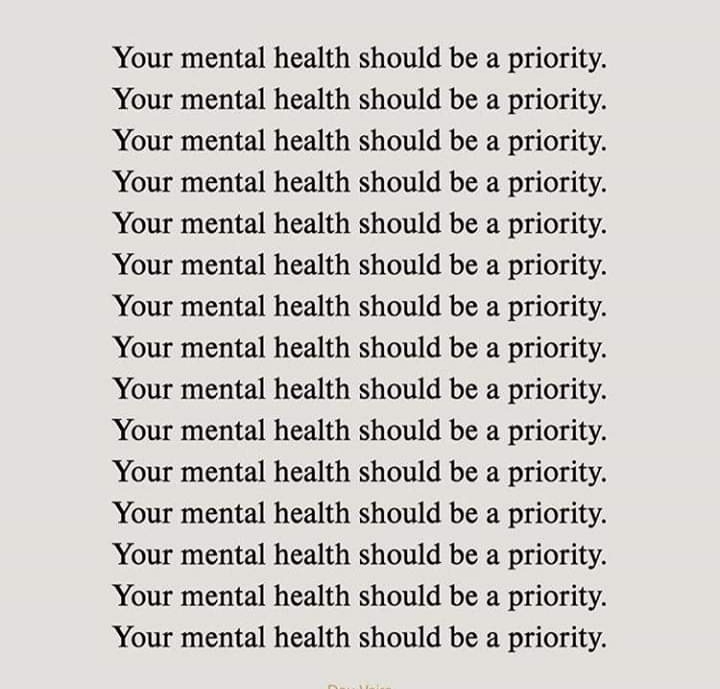Take care about your health - 10 tips
If your health fails, it can overshadow everything else that’s going on in your life. From relatively minor health issues such as aches and pains, lethargy, and indigestion to major health problems that can threaten your existence, health can really affect happiness and stress levels. Making a commitment to taking on healthier habits this year can have a far-reaching payoff: you’ll feel better in everything you do.
This is particularly important as it relates to stress. The stress that comes from poor health is significant because when you are facing a health challenge, it affects so many areas of your life. Daily tasks become more challenging, health expenses can pile up, and your ability to earn a living can even be in jeopardy. And stress itself can exacerbate health issues from the common cold to more serious conditions and diseases, so it really pays to maintain healthy stress management habits not only to be able to manage the stress of poor health, but to help avoid it altogether by staying healthier longer.
Avoid those snacks, take a walk during lunch, and clean that keyboard, and you're on your way to a healthier workday.
Eat A Healthy Diet For The Right Reasons
Rather than eating right solely for the promise of looking better in your jeans, you should also make a commitment to eating foods that will boost your energy level and keep your system running smoothly.
This is because what you eat can not only impact your short-term and long-term health, it can affect your stress levels. If you're hungry ur malnourished, you may be more emotionally reactive to stressors, or may not have the reserves to handle what comes up as efficiently as you would if you were operating on a full stomach of healthy food.
Watching what you eat can be a stress management tool as well as a health preserver.
Another reason it's a good idea to maintain a healthy diet for these reasons is that your diet has a more immediate effect on your mood than on the number on your scale. If you eat a poor diet, you may feel lethargic, jittery, or moody in a matter of minutes or hours, while it may take a greater buildup of unhealthy meals to make a difference that can be seen on the scale. This means that there's a more immediate consequence to a poor diet. Conversely, you may also feel more energized and optimistic when you're eating right, so this is a more constant and immediate reward for eating well than a change in clothing size. If you remind yourself that what you eat now will affect how you feel in the coming hours, it may be easier to stick to a healthy diet.
Make Sleep A Priority
Make a commitment to get enough sleep at night. If you haven't gotten adequate sleep, you may be less productive, less mentally sharp, and otherwise more prone to the effects of stress. Carve out a full eight hours, avoid caffeine after 2 pm, and adopt a calming technique such as meditation, and let your body restore itself each night.
You may be surprised by how much less stressed you feel when you're not tired if this is an issue for you right now. And use these proven strategies if you have trouble getting quality sleep when stressed. You’ll feel better all day.
Find A Fitness Habit That Works For You
We've all heard the advice to "eat right and exercise," but can be difficult to fit in workouts around a busy schedule, particularly when you're feeling exhausted from stress. One proven strategy for making fitness a regular part of your life is to build an exercise habit around your other habits--either attach a workout to your morning routine, your lunchtime habits, or make it a regular part of your evening--you get the idea.
If you make a morning jog part of your getting-ready-for-work routine, for example, it is much more likely to happen than if you wait until you feel like jogging and happen to have a free half-hour, especially if you lead a busy life like most of us and are tired at the end of the day. Another important way to make exercise easier is to choose an activity that you actually enjoy--walking while listening to an audiobook, for example, or attending a class at your gym where good music drives up your energy level. Look for something you'd like to do, find a time when you can make it work with your schedule, and go!
Watch What You Put Into Your Body
Avoid putting unhealthy substances into your body; nicotine, excess alcohol, and even excessive caffeine can take a toll on your health in the long run, but also make you feel lousy overall in your day-to-day life. In fact, it helps if you can avoid allowing toxic thinking patterns from exacerbating your stress levels as well. Find healthier ways to manage stress, and you'll enjoy double health and stress management benefits!
These are three important ways to take care of your body that you may not naturally think of as stress relievers. However, if you set goals to make these ideas a reality in your life, you'll feel the difference immediately, but will also see results in multiple areas of your life in the coming weeks and months. Few habits come without effort, but these three can make a significant impact on your life, and are well worth the effort.
Here are seven more important tips to know about:
Top 10 Self-Care Strategies for Overall Stress Reduction
Taking care of your mental health is just as important as taking care of your physical health. Here are a few tips to help you maintain a good mental state.
1. Develop a good opinion of yourself.
According to mental health experts, high self-esteem is the best tool we can use against difficulties in life. Studies show that people with high self-esteem have more confidence in themselves and their capabilities.
2. Eat well.
Diet plays a crucial role in mental health; it’s important to have a healthy diet. If you need help with this, consult the Canadian Food Guide. You can also consult a nutritionist for a personalized guide adapted to your needs.
3. Exercise regularly.
Physical exercise plays a positive role in your mental health. It causes chemical reactions that are proven to reduce anxiety and stress and put you in a good mood.
4. Learn how to manage stress.
Stress is part of life, so you must learn how to deal with it in order to keep your sanity. Discover the source of your stress to find ways to better handle it.
5. Enjoy the present.
Learn how to focus on the present rather than being preoccupied with past or future events. This will help you savor life’s little pleasures that you would otherwise miss.
6. Find your work-life balance.
If you feel like you’re spending too much time and energy on one part of your life, your work-life balance may be off. Learn to do both! The best way to do this varies from a person to another. Find the strategy that works best for you.
7. Get enough sleep.
Lack of sleep affects your mental health as it can cause emotional and psychological problems. Go to bed at a reasonable hour and try to get 8 hours of sleep. It will help you achieve maximum recovery and face the next day with more vigor.
8. Develop relationships.
Developing and maintaining solid personal relationships is very beneficial to your mental health. So work on establishing good relationships with people around you, at home, at work or in your community. These contacts will enrich your life and provide you with great support.
9. Have fun!
Taking time to laugh and have fun will go a long way in staying mentally healthy. Laughter lifts moral, keeps you in a good mood and releases stress. Find ways to laugh: comic strips, funny videos or joking with friends.
10. Get help if you need it.
At some point in your life, you may need to ask for help. If so, don’t hesitate! It takes courage to seek help but it can really change your life. Know that there are many resources out there. Talk to your pharmacist. He will guide you in finding the best options.





I love it when people come together and share ideas. Great website, keep it up!